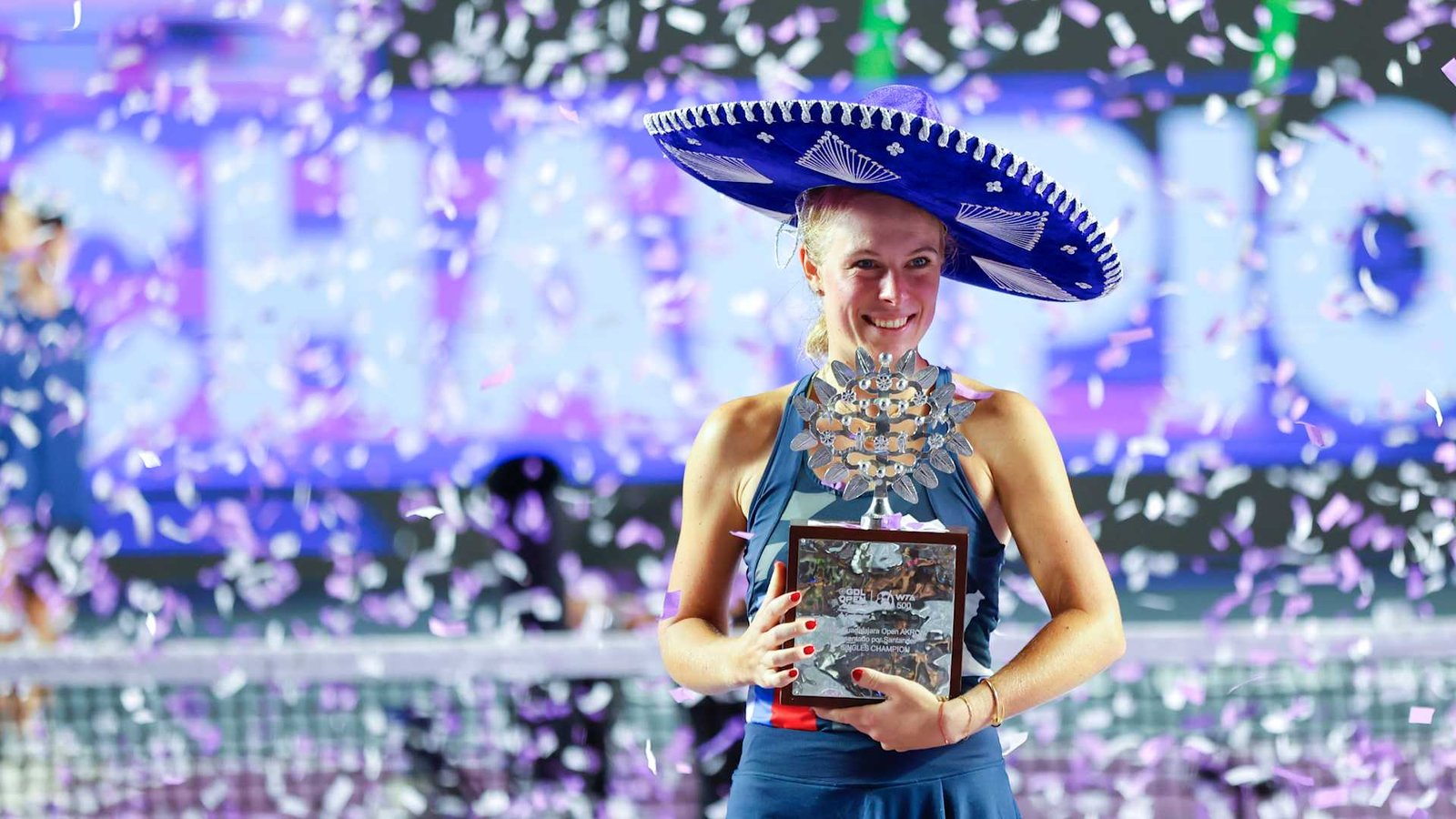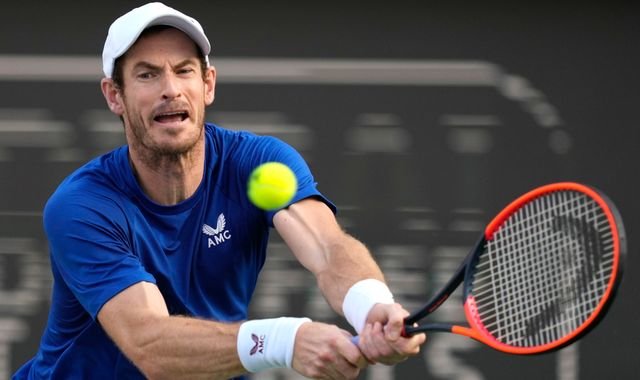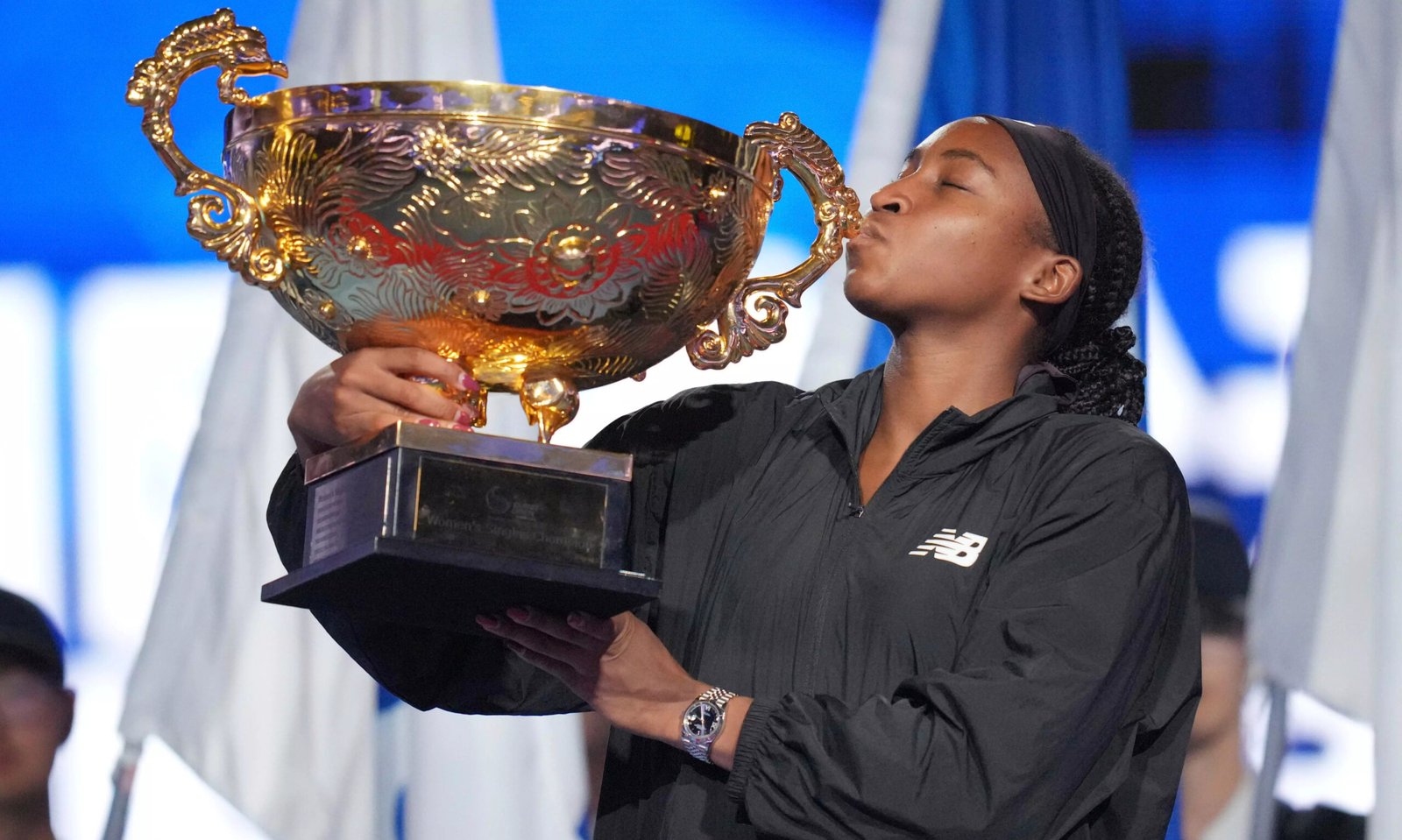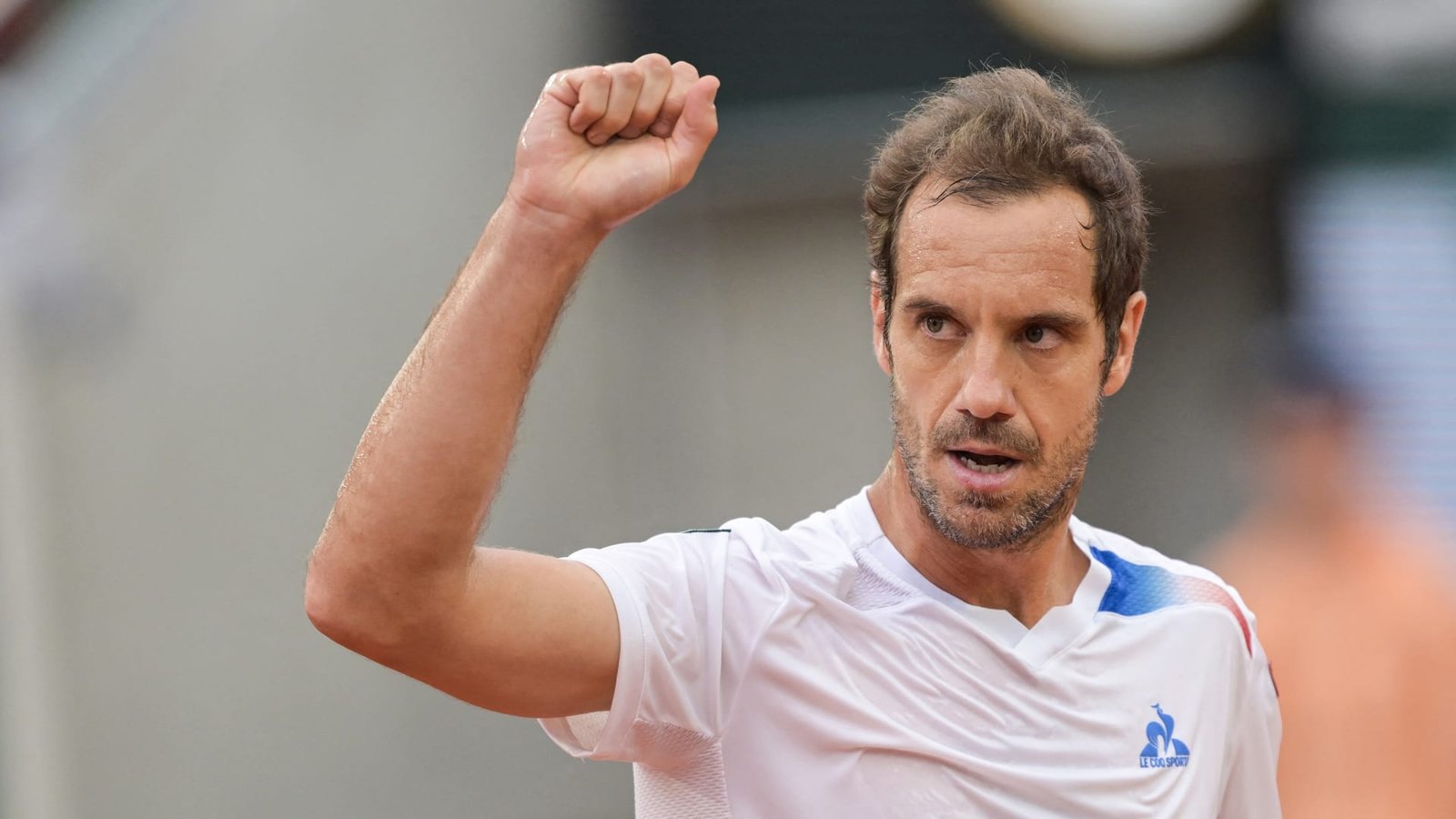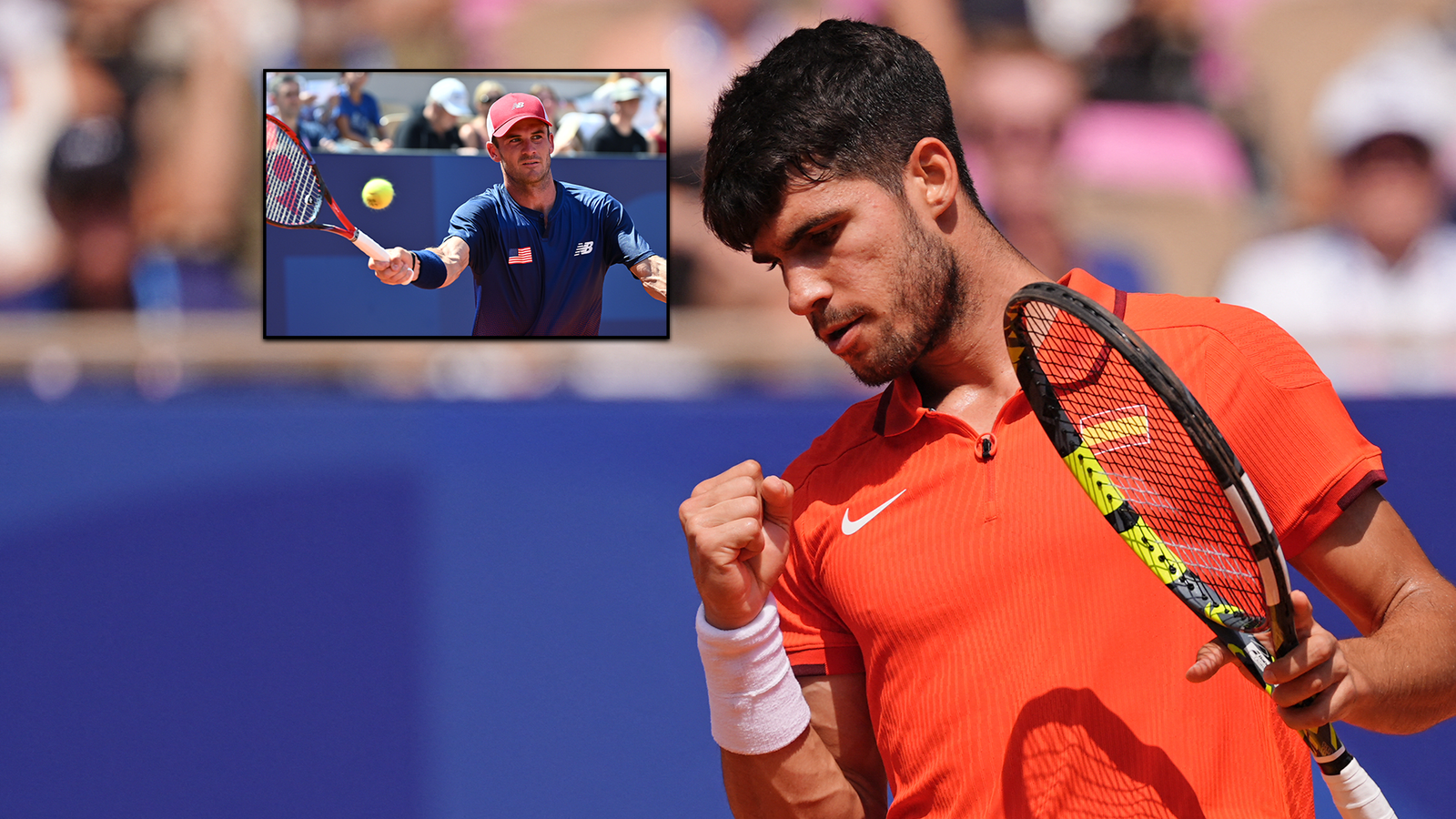Novak Djokovic defeated Carlos Alcaraz 7-6 (3), 7-6 (2) in a thrilling and dramatic gold-medal final at the Summer Olympics in Paris 2024.
With this triumph, Djokovic completes his remarkable career with 24 Grand Slam singles titles and wins his first Olympic gold medal. Following a victory with no service interruptions, the Serbian declared that it was “arguably the biggest success I ever had.”
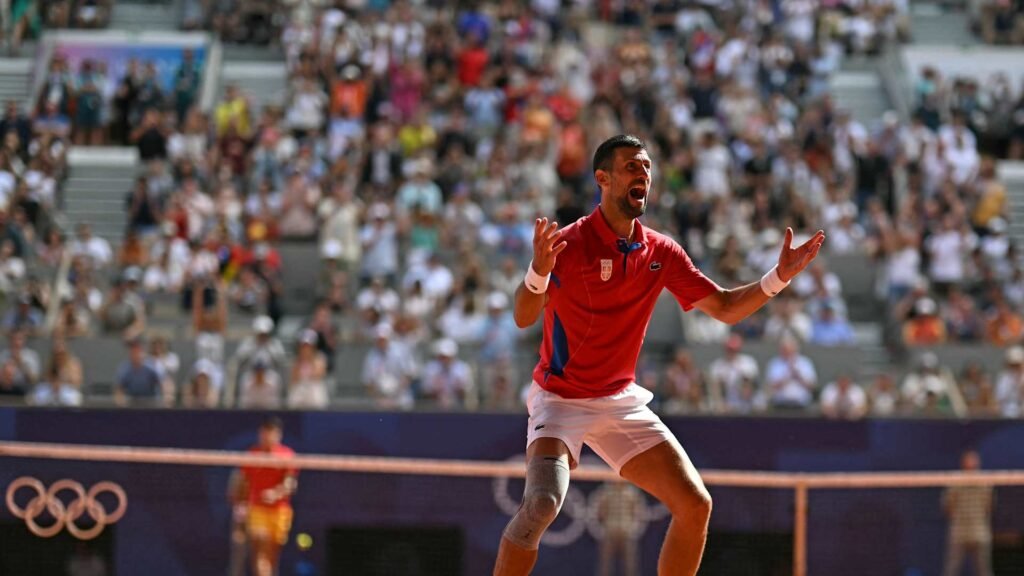
Carlos Alcaraz and Novak Djokovic were aware of the significance of Sunday’s gold medal match for their careers. In addition, unlike many of their recent matches, it was a best-of-three match, so both players realized how important the opening set was.
It was a first that seemed like a fifth—and that proved to be significant in a manner.
Having won 24 Grand Slam singles titles, the Serbian sealed the deal on any men’s tennis GOAT arguments with a 7-6 (3), 7-6 (2) victory, adding his first Olympic gold medal to his collection.
“I’m overwhelmed with everything I’m feeling right now,” Djokovic remarked, becoming the latest Golden Slammer to join Serena Williams, Andre Agassi, Rafael Nadal, and Steffi Graf (who was present). “Arguably the biggest success I ever had.”
Alcaraz, who lost in two sets but was never broken, declared, “My moment will come.” “I will bring the gold medal to Spain one day.”
The top two seeds at the Paris Summer Games saved a total of 12 break points in the first ninety-three-minute match. Alcaraz was 0 for 8 in the ninth game, which lasted more than 14 minutes, and included five misses. Djokovic was unable to win deuce points, but he would always be able to negate Alcaraz’s advantage after one. They’d played sixty-five minutes at 5-4.
The hard game was over, but this was really just the beginning of a conflict. Djokovic got as close as 30–30 on Alcaraz’s serve at 5–4, but the Spaniard took the following two games. On Djokovic’s serve, Alcaraz got as close as 30-30 at 5-5, but the Serbian took the next two points.
Djokovic neared 30-all once more in the following game, but Carlitos salvaged it with a third-shot forehand winner. The only fitting end to this exhibition of all-court brilliance was a tiebreaker.
Up until Djokovic’s return victory at 3-3 off an Alcaraz second serve, everything was tied. Hitting a home run at a critical juncture, Nole? Sounds familiar…
Playing in his fifth Olympics, the 37-year-old outscored the 21-year-old by winning the next three points to take the lead. With eight consecutive holds in the second set, the blink-and-you-lose combat persisted.
Also Read: Lorenzo Musetti Clinches Olympic Bronze Medal in Paris 2024 With Victory Over Felix Auger-Aliassime
The tenth game was noteworthy once more. With a 40-0 lead, Alcaraz appeared to be winning another easy service game. Up until the next three points, which Djokovic won. Though both players may have produced their finest hitting in a single rally after the ensuing deuce point, Alcaraz prevailed in the end. The final shot of an incredible 25-shot sequence came only after both players had earned the point several times if they had been playing against anyone else.
Djokovic and Alcaraz had now gone over two and a half hours by a 5-5 score. You might be surprised to learn that they required one more tiebreaker to determine the set.
As he has done throughout his illustrious career, Djokovic converted defense into offensive by using the opening point for a mini-break. Only six points separated him and his winning crosscourt forehand. Commentator Rennae Stubbs yelled, “Vintage Novak!” after Djokovic won the second point with another excellent defense (and with a fault by Alcaraz).
Alcaraz fought back to take the mini-break for 1-2, but Djokovic answered with yet another incredible cross-court forehand winner to win 3-2 and force two serves.
After four points, Djokovic completed a career’s worth of accomplishments with what may have been his greatest forehand winner.
Also Read: Lorenzo Musetti Clinches Olympic Bronze Medal in Paris 2024 With Victory Over Felix Auger-Aliassime
Novak Djokovic’s Iconic Shot Secures Olympic Gold
The Serbian player’s greatest performance to date is summed up in his match-winning victory over Carlos Alcaraz and the explosive cross-court forehand that set it up.
Which are the best strokes ever made by Novak Djokovic, the all-time greatest men’s tennis player? Three immediately sprung to mind before Sunday. In the 2011 US Open semifinals, he made an all-or-nothing crosscourt forehand return to save match point against Roger Federer. This shot was formerly referred regarded as “The Shot.”
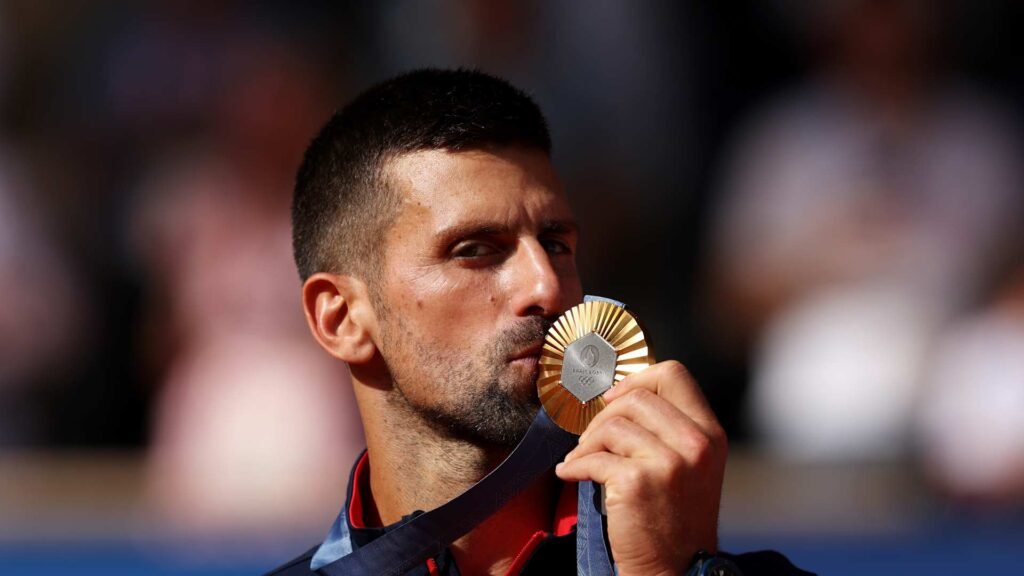
Secondly, he executed a brilliant cross-court forehand stroke late in the fifth set of their 2018 Wimbledon quarterfinal matchup with Rafael Nadal.
Thirdly, in the 2019 Wimbledon final against Federer, he executed an even more devastating crosscourt forehand pass to rescue a championship point.
You may now add a fourth devastating blow to that list, and it might take the top spot. It was a crosscourt forehand once more. Once more, it was against Carlos Alcaraz, one of his fiercest competitors. Once more, it occurred late in a huge competition, in the second-set tiebreaker of the Olympic gold-medal match that was a best-of-three-set battle, at 2-2.
Once more, it changed the course of events and demonstrated to the world that Djokovic is capable of surpassing anyone’s greatest effort.
At2-2, Djokovic and Alcaraz resorted to the kind of furious baseline rally that has defined this match—giving up all territory and fighting fire with more fire. Usually, Alcaraz is the one to end a rally that goes into a forehand exchange with Djokovic (or anyone else) by hitting a lightning-fast, hard-spinning winner into the corner that leaves his opponent stumbling aimlessly after the ball. And Alcaraz did make a shot that appeared to do just that for a brief moment.
But not now, not when Djokovic was attempting to capture a prize that had escaped his grasp for sixteen years. The 37-year-old did not watch the ball pass him; instead, he took a step back, rotated his hips, and launched an even harder crosscourt forehand at a more acute angle, leaving his opponent, who was 21 years old, unable to return fire. Djokovic led 3-2, had a winner, and had a mini-break. He wouldn’t drop any more ground.
Djokovic remarked, “I don’t know what to say, I’m still in shock, honestly,” following his close call. “I risked everything to win an Olympic gold medal at the age of 37, including my body, soul, love, and family. I completed it at last.
In addition, Djokovic accomplished this feat by triumphing over a 16-year-old opponent in the most skillfully played and fiercely contested match of 2024. The opponent had also appeared 16 years younger when Djokovic defeated him in three swift sets in the Wimbledon final three weeks prior. How much those three weeks changed.
Djokovic brought the fight right to Alcaraz, much as he had when they first met at Roland Garros earlier year. By moving forward, taking the ball early, serving and volleying, and never hesitating to hit the trigger, he neutralized the Spaniard’s more devastating power. The arguments were hurried. They pulled both men in different directions. Rather than being won by mistakes, they were won by winners and forcing shots. Thirteen of the fourteen break points occurred in the first set, but they were all saved.
This match was won by Djokovic in three minutes. The first occurred in the opening set when he was serving at 4–4. The contest may have been decided here, as it crested. When it came to making difficult get after impossible get, Alcaraz was in full scrambling mode, and Djokovic could only shake his head and chuckle at his undead young opponent.
Alcaraz got to break point five times, but Djokovic stopped him five times by landing the initial blow. The set might have been his if Alcaraz had broken there. Djokovic, though, refused to give up.
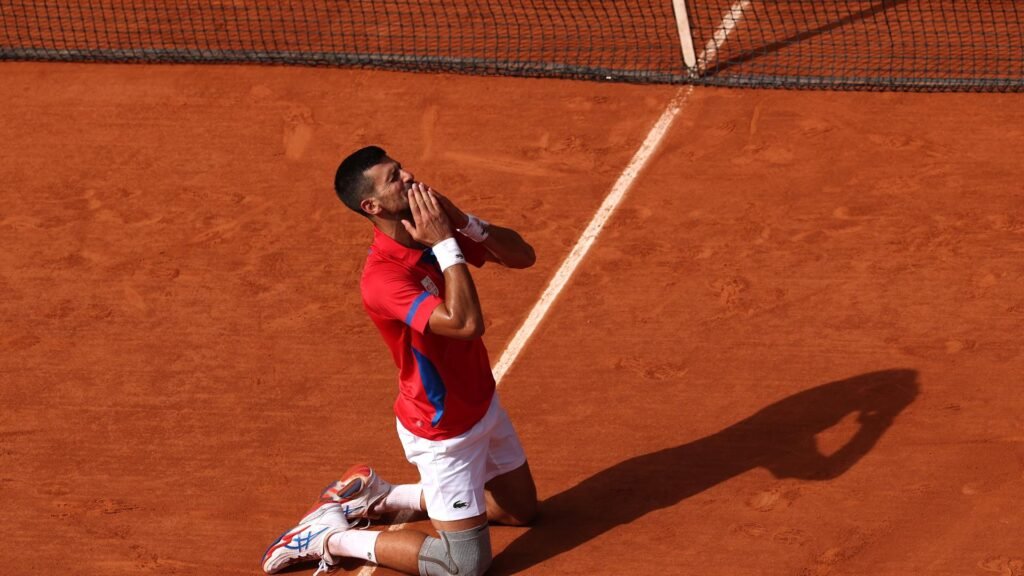
The other two critical moments occurred during the tiebreakers, and they all transpired similarly. After a 3-3 tie in the first set, Djokovic made an odd-looking winner with a forehand return of a second serve that may have been mishit. Alcaraz then committed two consecutive inadvertent mistakes.
Before Djokovic broke through with the previously mentioned forehand winner, the score in the second tiebreaker stood at 2-2. Once more, Alcaraz made two careless mistakes that decided his fate. Djokovic and Alcaraz battled evenly to the very end in both sets, and in both cases, it was the younger player who gave up.
“We performed two sets for about three hours. Djokovic declared, “It was an incredible battle, an incredible fight.” “The only time I truly believed I could win the match was when the final stroke went past him. I mean, I thought I could win, but the fact that he keeps coming back makes me think I can win. I keep getting asked to play my best tennis by him.
The victory represents the pinnacle of Djokovic’s career. Along with Serena Williams, Andre Agassi, Rafael Nadal, Steffi Graf, and others, he becomes the first gold medalist for Serbia. Djokovic described it as the icing on the cake and claimed that it gave him the confidence to finally feel like he is “enough” as a player and a person.
When elderly legends perform like they did when they were younger, we refer to them as “turning back the clock.” However, it doesn’t always feel quite as accurate as it did on Sunday. It appeared as though Alcaraz had finally overtaken Djokovic at Wimbledon just a month ago, and the Big Three era appeared to be coming to an end. Someday, that change will take place. For now, though, the most impressive thing about Djokovic’s win might have been his capacity to temporarily revers the inevitable changing of the guard.
Or you might say that Djokovic was just being Djokovic. His record on the tennis field indicates that he always gets what he wants, whether it’s amazing forehands or beating Federer, Nadal, or Alcaraz.

